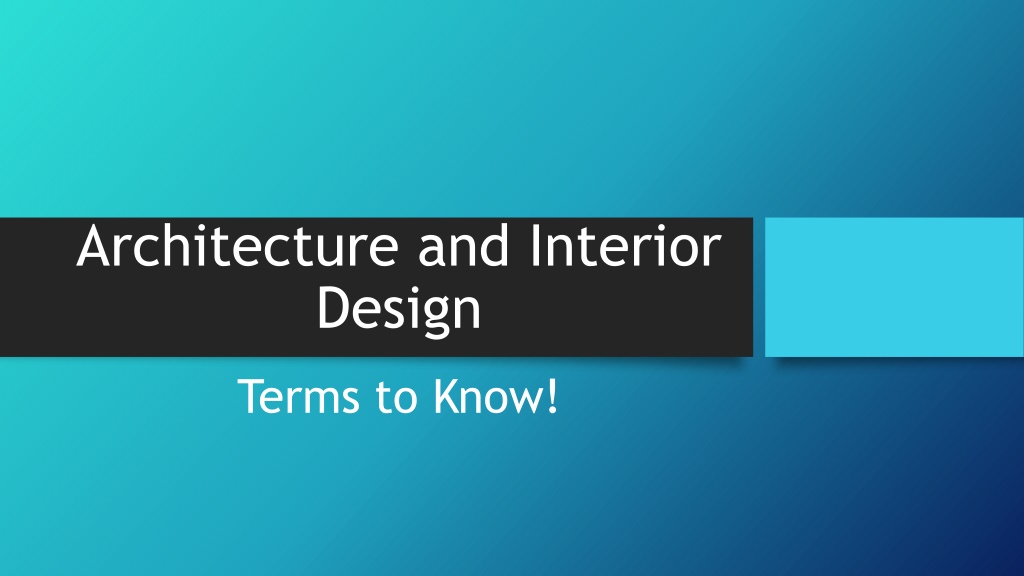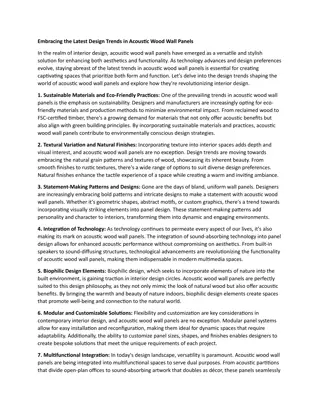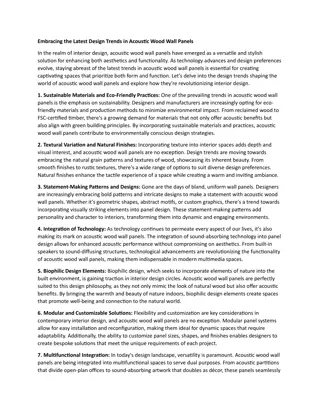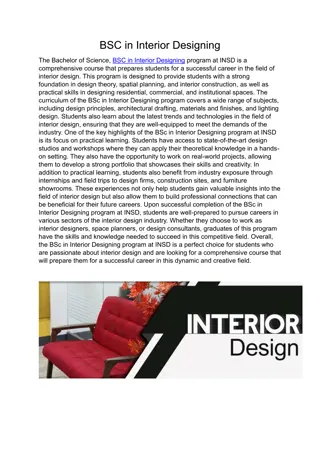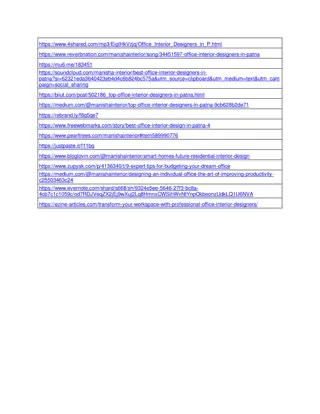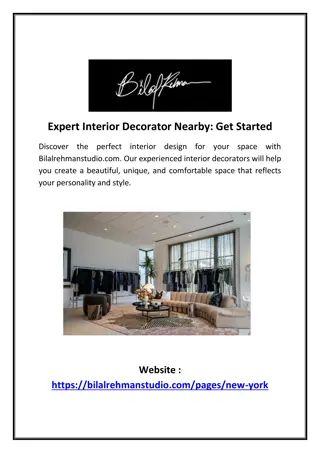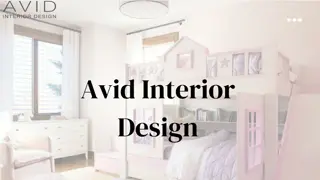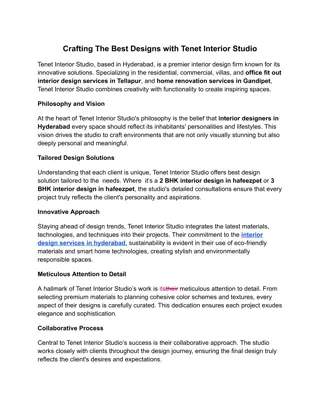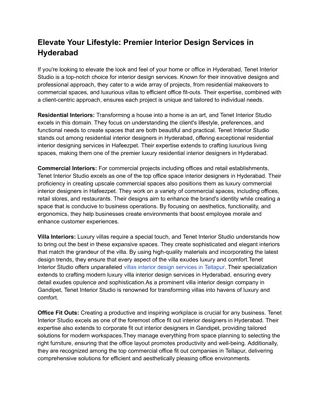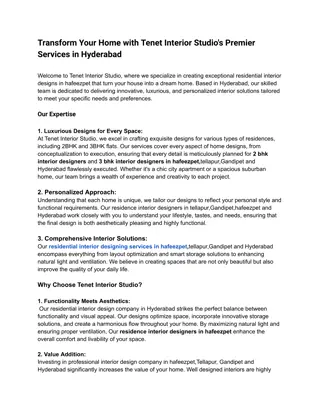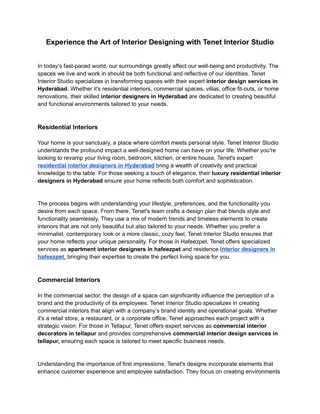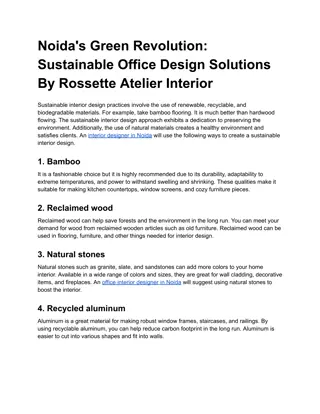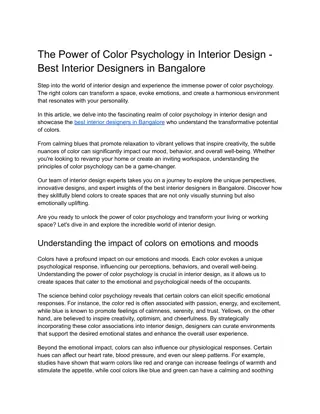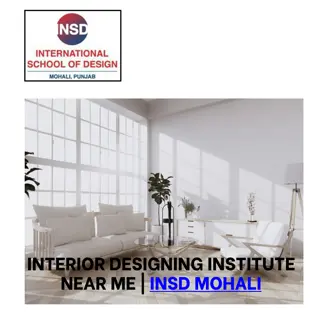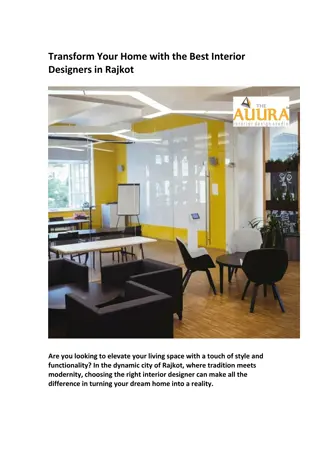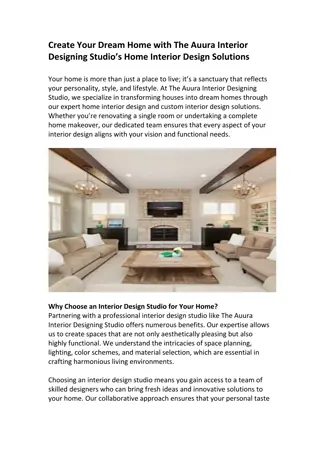Essential Architecture and Interior Design Terms
Learn about key terms in architecture and interior design like Project Architect, Interior Designer, Mood Board, Aesthetics, ADA, Client, Commission, Cartoon, Balance, and more. Understanding these terms is essential for professionals and enthusiasts in the field.
Download Presentation

Please find below an Image/Link to download the presentation.
The content on the website is provided AS IS for your information and personal use only. It may not be sold, licensed, or shared on other websites without obtaining consent from the author.If you encounter any issues during the download, it is possible that the publisher has removed the file from their server.
You are allowed to download the files provided on this website for personal or commercial use, subject to the condition that they are used lawfully. All files are the property of their respective owners.
The content on the website is provided AS IS for your information and personal use only. It may not be sold, licensed, or shared on other websites without obtaining consent from the author.
E N D
Presentation Transcript
Architecture and Interior Design Terms to Know!
Project Architect: Responsible for overseeing the architectural aspects of the development of a design including the production of construction documents (plans).
Interior Designer: An individual who creates pleasing, harmonious safe, practical indoor spaces that reflect the client s personality.
Mood Board: Collection of design elements (color palette, fabrics, and furniture) considered for a project to help visualize the design in advance. Ultimately, it s all about seeing a variety of ideas, deciding how they work together, and providing a jumping off point for the finished design.
Aesthetics: Creating a design that is well balanced, creating visual harmony, making it beautiful, pleasing and interesting in appearance. It takes into consideration the visual relationship determined by light, shadow, and contrast.
ADA (Americans Disability Act): Is a federal civil rights law that prohibits discrimination against people with disabilities in everyday activities. ADA guarantees that people with disabilities have the same opportunities as everyone else.
Client: A person who employs (commissions) the services of an individual in a professional field for guidance or advice.
Commission: A professional is hired by a client (employer) to create something specific with a deadline for completion. A commission often begins with a detailed drawing (cartoon) or Mood Board which the Architect or Interior Designer shares with their employer who may make changes.
Cartoon: Refers to a full-scale, detailed drawing on paper.
Balance: A unifying principle of design; distributing the apparent weight of the elements so that the work does not appear about to topple over from being heavier on one side than the other.
Color Palette: In design, it refers to a particular range, quality, or use of color.
Balance in Color: 60% main color 30% secondary color 10% accent color
Cutting Edge: The very latest, most stylish, invigorating, or advanced.
State of the Art: The most recent stage of technological development.
